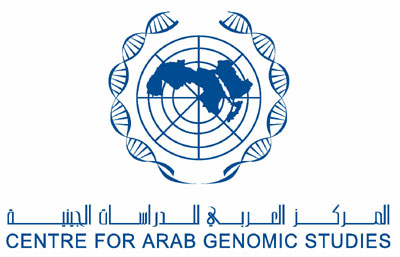In the context of supporting the World Down syndrome Day: Hamdan Medical Award issues a report on Down Syndrome in Arabs
21 March 2013
In the context of supporting the activities of the World Down Syndrome Day, on the 21st of March, Center for Arab Genomic Studies (CAGS), a division of Sheikh Hamdan Bin Rashid Al Maktoum Award for Medical Sciences, issued a report on Down syndrome in the Arab countries. The report is based on CAGS' Catalogue for Transmission Genetics in Arabs, which is updated on a regular basis as of the results of the latest scientific research in this field.
The report depicts Down syndrome as one of the most common chromosomal anomalies affecting approximately 1 in every 800 births, with higher incidence rates associated with increased maternal age. 95% of such cases happen due to the presence of one extra chromosome (number 21) in the human cell. Such patients have 47 chromosomes instead of 46. Mostly, the deviations from the correct number of chromosomes originate from errors in distributing chromosomes between dividing cells during the formation of the egg, the sperm or after the fertilization.
The report refers to the Down syndrome as a readily recognizable disorder because of its accompanied characteristic physical features. Perhaps the most noticeable of these features are the flat nasal bridge and the eyes of the patients. The eyes are more than normally distant from one another and the inner corners of the eye displaying oblique eye fissures. Importantly, Down syndrome is associated with intellectual impairment which can vary considerably from case to case. Potential complications of Down syndrome include delayed growth, joint laxity, certain consequences of incomplete organ formation, acute leukemia, impairment of cellular immune responses and congenital heart diseases
According to the CAGS' Catalogue for Transmission Genetics in Arabs (CTGA), the incidence of Down syndrome in many Arab countries is higher than international figures. The incidence rate among the Emiratis in Dubai is 1:319, which is slightly higher but comparable to figures from neighboring countries such as Oman (1:500) and Qatar (1:546). Similarly, Saudi Arabia and Kuwait are also on the higher end of international incidence rates with 1:554 and 1:581 respectively. One common factor in all of these countries, according to the report is the prevalence of intermarriages, especially between first cousins. Interestingly, a study from Kuwait showed the relative risk for closely related parents to have babies with DS was four-fold higher than that for unrelated parents.
"Higher incidence in DS in Arabs is attributed to many factors including having a high number of children and the increasing maternal age. The risk is less than 1:1000 at the age of 30 while it becomes 1:400 at the age of 35. Many approaches were taken there in order to deal with the challenges that emerged because of these trends. These approaches include: antenatal screening using ultrasound, blood tests, amniocentesis and chorionic villus sampling as well as preserving the oocyte from a younger age to be used later", according to the report.
"Despite the social and financial burden of Down syndrome, the associated mental impairment varies considerably from case to case. Many patients are able to integrate into the society, both in educational institutions or in the labor market. Arab countries are in dire need to address these issues sooner than later through conducting retrospective and prospective research. Such research can help devising the best protocols and approaches to meet the challenges imposed by this troubling disorder", the report said.
It is worthy to mention that Sheikh Hamdan Bin Rashid Al Maktoum Award for Medical Sciences is a gold sponsor of the World Down Syndrome Day activities which will be held next Saturday by UAE Down Syndrome association under the patronage of H.H. Sheikh Majid Bin Mohammed, Chairman of Dubai Culture and Arts Authority. The celebration will be held from 10 am till 7 pm at Dubai cultural village and from 5 pm till 7 pm at Dubai Mall.

